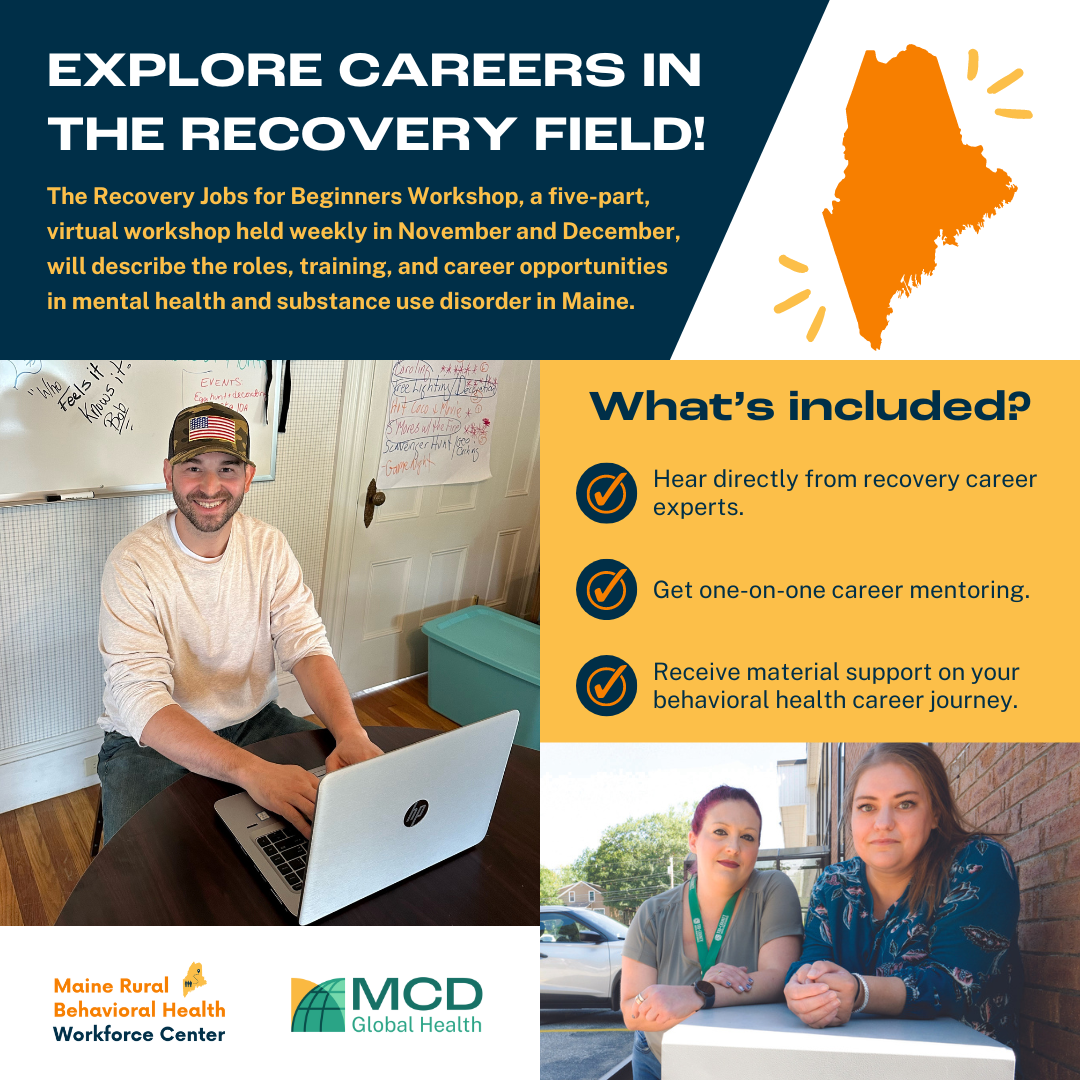Improving the Health and Well-being of Rural Communities
November 19, 2024

One in five U.S. residents live in rural areas where the land and resources are a primary economic driver. This lifestyle can fuel strong interpersonal relationships among neighbors, along with less noise, increased safety, and other benefits when compared to urban settings; however, with a high demand of physical labor to work the land and long distances to access various services, residents in rural areas tend to experience higher rates of poverty, difficulty in accessing health care, and being uninsured.
MCD Global Health celebrates and has a long history of working to improve health and well-being among those who live in rural areas in the Northeast area of the U.S. Below are two featured, MCD programs that focus on rural health:
Student Behavioral Health and Tele-behavioral Health Programs
The Maine Community Connections Initiative has made great strides in improving the health and well-being of those who live in small rural towns located within Washington County, Maine.
The county has high rates of substance misuse, overdoses, and deaths from cancer. Unemployment is well above the state average and income well below. These stressors put families in tough circumstances and create extraordinary stress for children, who are ill-equipped in managing their emotions.
The initiative is integrating community health workers (CHWs) into public schools to assist students in accessing tele-behavioral health services. Public school students can meet with clinicians using telehealth technology in school, reducing missed school time and time on waiting lists for services. The CHWs work with school staff, the student’s parents/guardians, and clinicians during this process.
“It's hard to find counseling and mental health services for our students, so the telehealth piece was something we were looking into,” said Charity Williams, principal of Princeton Elementary School.
Above: In this video, learn more about school-based tele-behavioral health services at Princeton Elementary School from those directly involved.
From September 2022 through June 2024, seven rural schools in Washington County, Maine, participated in the program. Nearly one in five K-12 students have received behavioral health services, about half of those through telehealth.
When combined with in-person behavioral health services, telehealth allows students to connect with a provider who may be a better fit for those students than providers who may be available locally. One telehealth provider shared that in her experience, students often become more comfortable engaging in therapy after learning there’s no risk of them or their parents running into the therapist out in the community.
The results to date have been phenomenal: parents, clinicians, and staff observed that students were experiencing improved relationships with their teachers, peers, and parents/guardians. In state-sponsored standardized testing, more high school-aged students from one school district reported feeling a sense of belonging and of having adults in their lives who they could turn to for support.
The availability of telehealth services contributed to a continuity of care for students who changed schools and continued sessions with their existing provider.
A free toolkit on how to create a similar program for communities is available on MCD’s Telehealth Classroom at telehealthclassroom.org.
Strengthening Capacity in Maine’s Behavioral Health Workforce
Substance use disorder (SUD) touches every community within the U.S., and Maine is no different with a total of 504 confirmed and suspected fatal overdoses and more than 9,000 total nonfatal overdoses in 2023, according to the Maine Monthly Overdose Report from the University of Maine. Because of the consistent presence of SUD in rural communities, there is also an increased need for services.
There are several challenges when maintaining and building Maine’s rural mental health and substance use workforce. These include a lack of clear and useful information about career paths, insufficient opportunities, training, and resources, low wages, insurance reimbursement practices, and housing and transportation.
MCD’s Rural Behavioral Workforce Center (RBHWC) offers numerous training opportunities and resources to support Maine’s capacity to meet the growing need, including opportunities for those with lived experience of SUD, providers, prescribers, and other health workers.
In addition, the RBHWC has launched an online resource platform with a compilation of workforce resources for Maine, New Hampshire, New York, and Vermont. If an individual is working toward a behavioral health certification, there is step-by-step guidance available to them on the new site with all necessary resources located in one place.
"We have worked hard to make rbhwc.org a ‘one-stop shop’ for behavioral health workforce job seekers, whether they are in peer or clinical tracks,” said Catherine Sanders, MCD’s RBHWC program director.
These opportunities pave the way for a growing behavioral health workforce in Maine. One such opportunity is the Recovery Jobs for Beginners workshop, designed for people with lived experience, affected others, and allies who are interested in starting their career journeys in mental health and SUD in Maine.
A total of 83 participants, with another 28 on track, have completed the workshop since 2021. Six months after completing the workshop, participants reported having job offers in mental health and SUD with 82% of respondents participating in additional training in behavioral health since the course, 61% certified in the field, and 57% contributing to the workforce.
